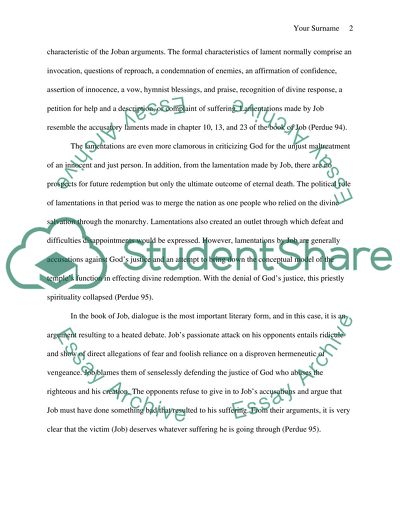Cite this document
(“Literary Forms in the Book of Job and Ecclesiastes Essay”, n.d.)
Retrieved from https://studentshare.org/religion-and-theology/1447832-the-literary-forms-in-book-of-job-and
Retrieved from https://studentshare.org/religion-and-theology/1447832-the-literary-forms-in-book-of-job-and
(Literary Forms in the Book of Job and Ecclesiastes Essay)
https://studentshare.org/religion-and-theology/1447832-the-literary-forms-in-book-of-job-and.
https://studentshare.org/religion-and-theology/1447832-the-literary-forms-in-book-of-job-and.
“Literary Forms in the Book of Job and Ecclesiastes Essay”, n.d. https://studentshare.org/religion-and-theology/1447832-the-literary-forms-in-book-of-job-and.


